Who among us can say their home has, at one point, been surrounded by angry rioters threatening arson.
The image conjured may sound like something derived from a film but it was reality for R Vengadesan and his family in Mali - where he was posted as Malaysian ambassador in 1991.
At the time, there were a series of riots in the Malian capital of Bamako against then-president Moussa Traoré.
“There were riots in the town against his rule and he was deposed as part of a coup.
“Then, they (the rioters) almost came up to my house. I had a very good translator, (who was) interpreting. He said, ‘Ambassador, be careful, they’re coming near your house.’
“And I was struck with fear. Then he told me, he said, ‘Fly your flag - the Malaysian flag - and they will respect that. They won't burn your house,’” said Vengadesan - who took on his first ambassadorial role in Mali from 1990 to 1992.
Due to this move, his family had successfully escaped the fury of the rioters unscathed.
He added that the protestors had, beforehand, razed a handful of houses belonging to Malian cabinet ministers a stone’s throw away from the former diplomat’s home.
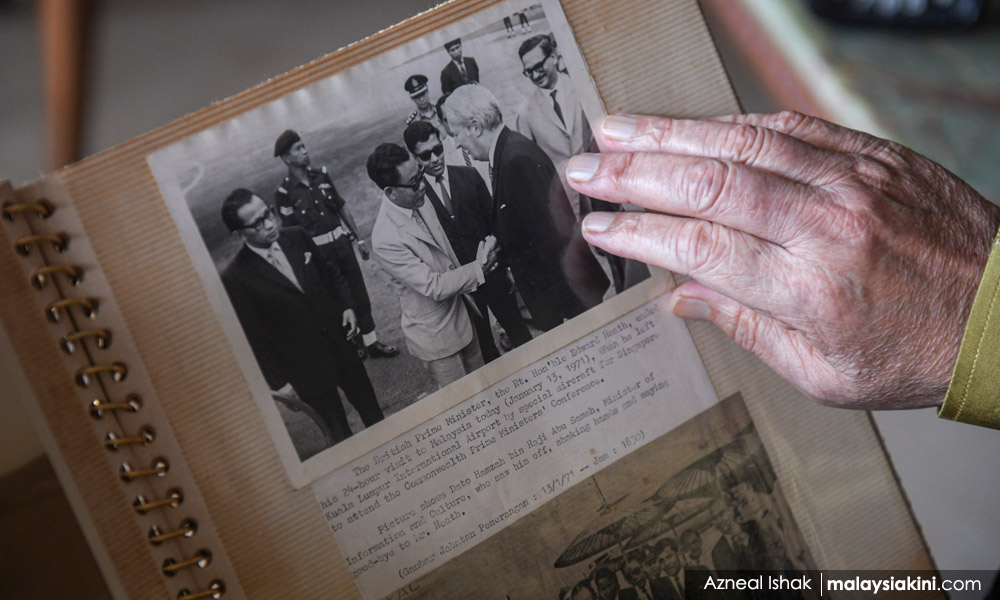
During his time as Malaysian ambassador to Mali, he had also opened the first Malaysian embassy in the capital of neighbouring Senegal.
“Even the prime minister then - Dr Mahathir (Mohamad) came to visit and was hosted at my residence.
“I was enjoying myself (in Mali) and suddenly they called me back because they felt that I had been abroad for too long,” said Vengadesan, who had then served the nation abroad for the better part of two decades.
Growing pains
Vengadesan was born in Banting at the tail end of World War II on June 25, 1945.
In an exclusive interview with Malaysiakini, the former diplomat recalled that many Indian families were left traumatised by the events of the war.
His own family briefly moved to Tamil Nadu, India before returning to Malaya where job prospects were significantly better and the family had established their roots from when Vengadesan’s paternal grandfather first migrated in the late 1890s.
Vengadesan had come of age alongside the nation, being 12 years old when Merdeka took place in 1957, and 18 on Malaysia Day in 1963.
He had also grown up during the communist emergency as a child in the rural areas, where encounters with communists were more likely to happen.
“There was one time when my father woke my mother up in the middle of the night to cook for communists who were on the run and had come to our house looking for food!
“The ordinary people were caught between the government’s security forces and the communist guerillas, but we were not harmed,” he said.
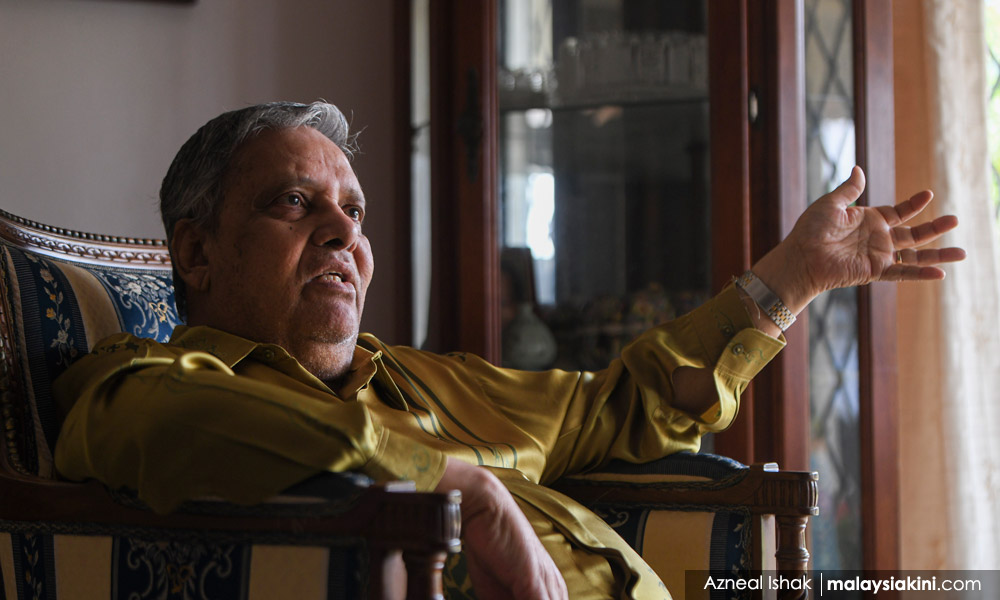
Vengadesan also described Malaya’s independence from the British as a happy occasion and noted many then were aware that “Singapore, Sabah, Sarawak and maybe Brunei” would be joining later.
Speaking on Malaysia Day in 1963, Vengadesan told Malaysiakini of a personal tragedy which occurred just as Malaysia was formed.
“I had a very dramatic day on Malaysia Day itself - Sept 16, 1963. I was 18 years old and went to Merdeka Stadium.
“I was watching the celebrations and suddenly, to my utter consternation, one of my brother’s friends - by the name of Devan Nair - came looking for me.
“He told me with a shock that my father had died in Cheras,” said Vengadesan.
His father, who worked as a senior court interpreter, suffered a fatal heart attack while driving to a friend’s funeral.
Kerosene lamps and kaunda kaundi
Speaking of his childhood, he recalled a time in Malaya when the vast majority of homes did not have the luxuries of electricity and running water.
“We used kerosene lamps for lighting and you had to think twice about every expense.
“My childhood often involved simple games like kaunda kaundi (a cricket-like game of flicking sticks) and shooting catapults or marbles with my brothers and friends.
“Going to school, your pocket money was just a few sen but you could buy things with it,” said the former diplomat.
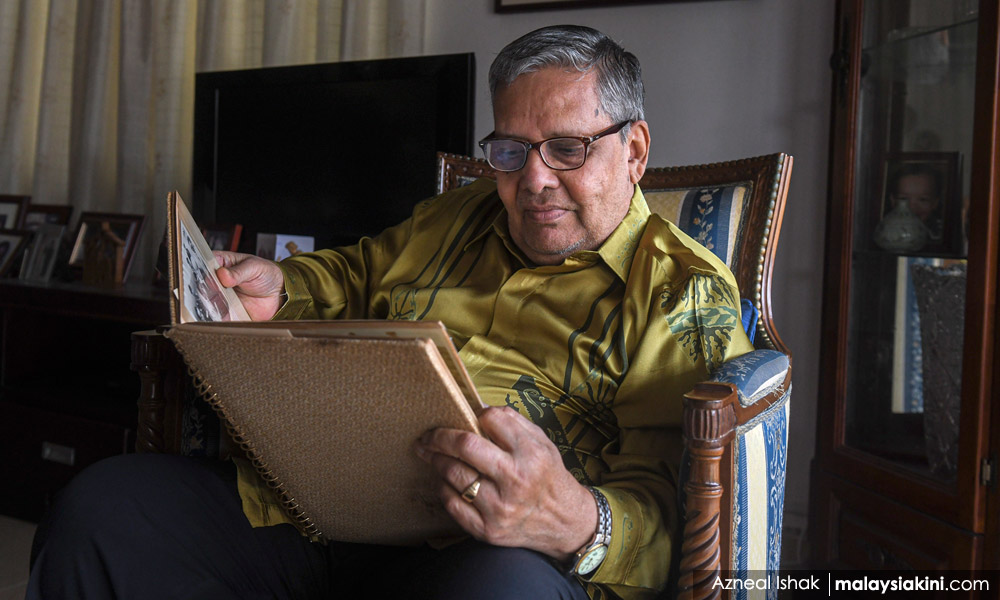
Much of Vengadesan’s memories growing up were of his childhood in Klang.
However, due to his father’s occupation, he was transferred around various schools, such as the Anglo Chinese School in Klang, Kajang High School, Maxwell Road School, and Victoria Institution, throughout his childhood.
He would later go on to attend Universiti Malaya to study English Literature.
May 13
After graduating in 1968, Vengadesan briefly took up a temporary job as a teacher in Kuala Kubu Bharu, Selangor before he moved to telecommunications - where he would earn a citation from the government for his service during the May 13 riots.
“In 1968, I got a job in Telekom and I was there when the deadly race riots broke out.
“I felt sad that this happened to a peaceful country like Malaysia, that there was discordance, unhappiness,” he said, warning his family at the time to stay indoors.
“I said, ‘Don't go out of your house because I personally saw dead bodies floating in the Klang River.’ So I was praying for peace. It was not a good place at that time. Some thought Malaysia was finished.
“At the same time, we had to go out and help people. I felt happy to play my part as a telecommunications officer because people were short on food and other supplies.
“We went out under armed escort to the riot-hit areas in the centre of town,” he said, naming Kampung Pandan and Batu Road as one of the areas he had ventured to in order to distribute food during the riots.
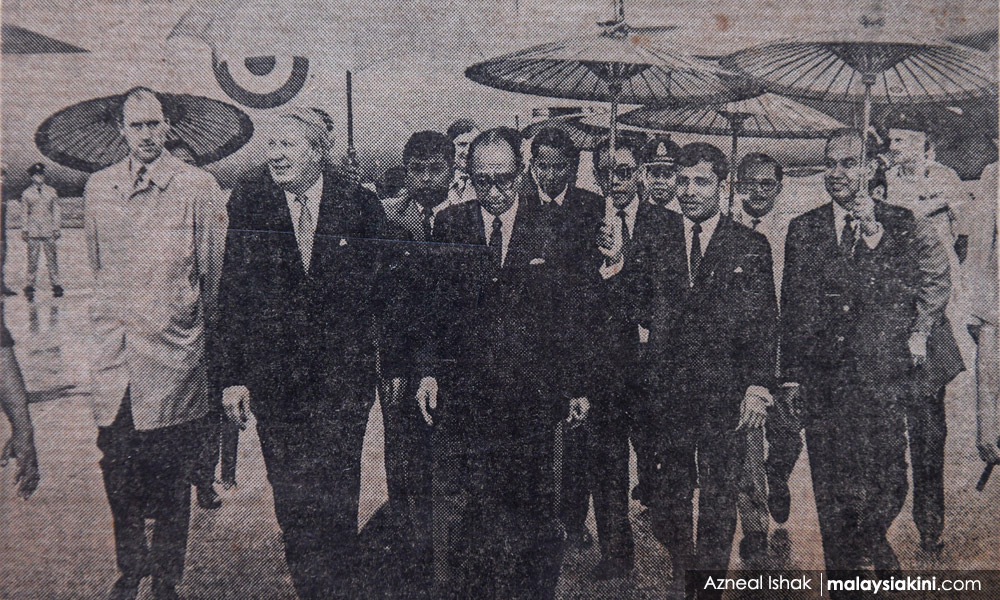
Following this, Vengadesan received a citation from the government, noting his courage in assisting relief efforts during the national emergency.
Vengadesan would then make a career shift and head to the Foreign Service later that year.
From Banting to Brussels
Vengadesan would go on to work in the Foreign Ministry for 35 years and was posted abroad for nearly 25 years - during which he had served under former prime ministers Tunku Abdul Rahman, Abdul Razak Hussein, Hussein Onn, Mahathir, and Abdullah Ahmad Badawi.
The former diplomat’s natural flair for language proved to be an asset in his career, being able to converse in seven languages. This includes English, Tamil, Bahasa Malaysia, French, Italian, Russian and Japanese.
“I had an interest in languages, and because I was working in the Foreign Service, it came in handy.
“Of course, to be a diplomat is about more than just language. You need to be curious and accepting of other cultures, have an understanding of history and politics, be open to negotiation and compromise and have a discreet nature.
“I think that is very important for deployment. Whether you’re an ambassador or a junior officer, you have to make adjustments to the place and you have to try to learn some of the local traditions (and) customs, then you’re much happier,” said the Banting native.
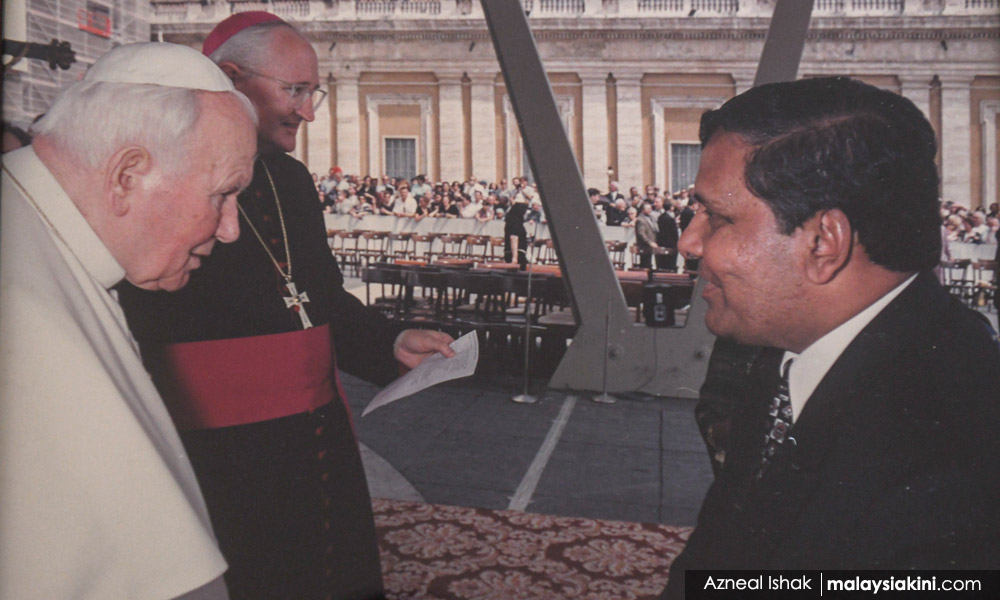
His shift to the Foreign Service marked the start of a more colourful, long-lasting career.
In total, he had travelled to some 70 to 80 countries and served in Belgium, Namibia, and Italy as well as communist countries like the then Soviet Union and Laos among others.
When asked about his time in the Soviet Union in the 1970s, he regarded his posting in Moscow as a challenge.
“There was also the unspoken belief that you could be spied on, because it was the Cold War era.
“What it was like for the people is very hard to gauge because you know that they’re all controlled by the communist regime,” he said, noting that ordinary Russians, on chance occasions where he was lost while driving, were generally kind.
He recalled Malaysian ambassador to the Soviet Union Tengku Ngah Mohamad Tengku Sri Akar’s fierce defence of Vengadesan - who got involved in an accident while driving Tengku Ngah and his wife - against the Russian authorities.
“I had one experience going with him to Hungary to present credentials and then some idiotic Russian driver crossed my path.
“The road was full of snow and I tried to brake but my car banged his. I was bleeding from my nose.
“The ambassador and his wife rebutted whatever accusations made by the Russian authorities, trying to cast the blame on me. He said ‘No, I was sitting in the front with Vengadesan and the fault was not his’,” said the former diplomat.
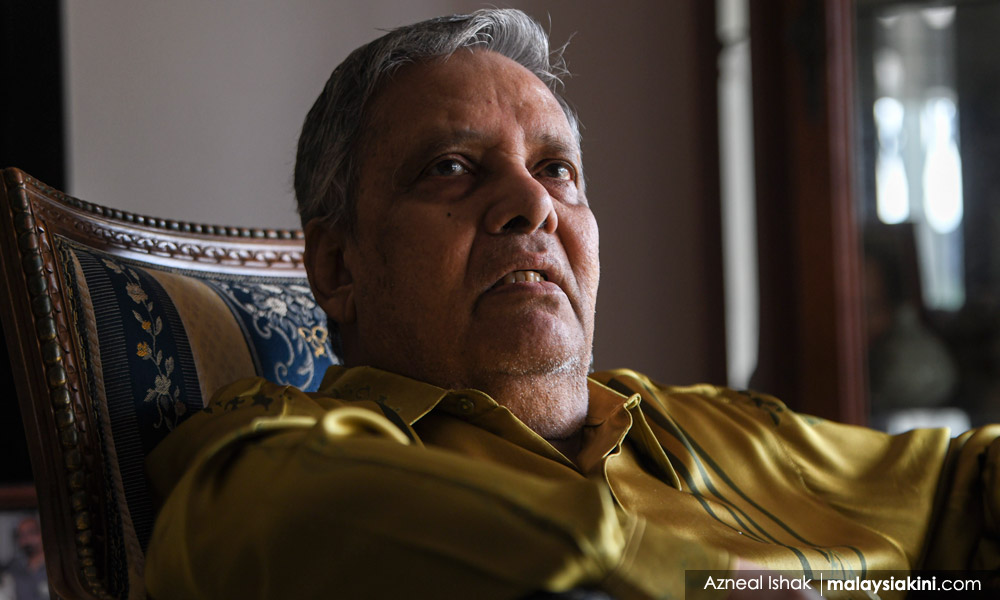
After his retirement from the Foreign Ministry in 2004, Vengadesan served as the Malaysian governor to the Asia-Europe Foundation for roughly six years.
“My main thing in retirement is that I have a moral responsibility to help provide for my two brothers who are mentally challenged and in their 70s,” he told Malaysiakini.
‘This is where I belong’
Vengadesan, now 77, said that the country has changed for the better in terms of technology, prosperity and development.
“If you are comparing (the present) to the post World War II era, it’s almost unrecognisable and we have largely been very, very blessed.
“But I think there’s been quite a lot of change - in terms of the polarisation between the races.
“When I was growing up, I believed we were part of this mission - to build a united Malaysia for all races,” he said.
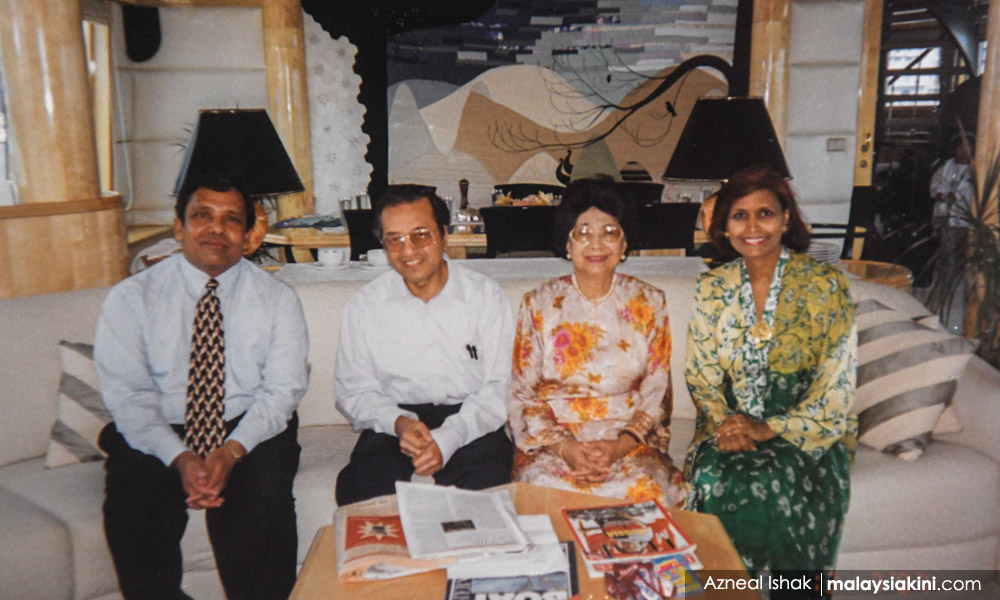
He noted that recent scandals like the 1MDB fund were as much economical as it was political.
“They all want a share of the pie but I think there is enough to go around for everybody to have a share. It is a stable country despite new challenges like Covid-19.
“We don’t have riots like in 1969. We have undercurrents of unhappiness here and there but I believe that all races can adjust to the changes,” he said.
He admitted that while many have migrated to seek greener pastures including two of his own children, he still believes the nation is good at its core.
“So, while I know that many have migrated to seek greener pastures, to me, this is still a good country.
“I’ve been to so many countries around the world and I wouldn’t, in my wildest dreams, trade Malaysia for any (other) country.
“This is where I was born, this is where I belong, this is the country I served and this is where I’ll die.” - Mkini




No comments:
Post a Comment
Note: Only a member of this blog may post a comment.